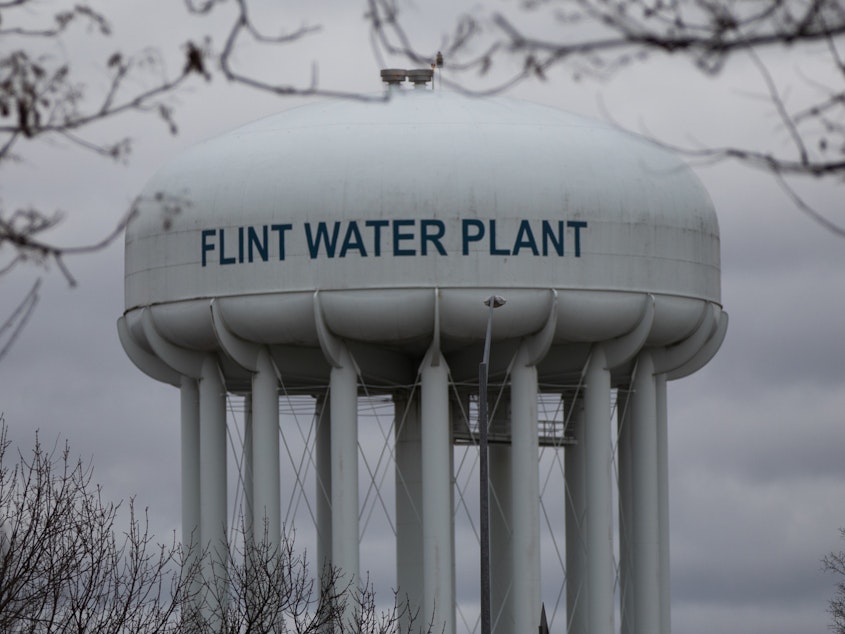Michigan Agrees To Pay $600 Million To Flint Residents Over Water Debacle

Michigan has reached a $600 million agreement to compensate Flint residents for the state's role in failing to protect them from lead-tainted water, the state's attorney general says.
The deal "puts the needs of Flint's children first," Michigan Attorney General Dana Nessel's office said in an announcement Thursday. A summary of the settlement shows that nearly 80% of the money would go to resolve claims filed on behalf of minors and children.
The city's water quality plummeted after a 2014 change to its water supply, causing more children to have elevated blood lead levels. The situation sparked additional outrage because officials had initially rejected complaints about the water, insisting that it was safe.
A task force concluded in 2016 that Michigan's environmental agency bore the primary responsibility for the water crisis in Flint.
The preliminary agreement would resolve all lawsuits against the state related to the Flint water crisis. It is the result of more than 18 months of negotiations that began under U.S. District Court Judge Judith E. Levy.
If the plaintiffs agree to the deal and it gets court approval, "it will likely be the largest settlement in the history of the state of Michigan," Nessel said. She called it a "step forward in the healing process" for Flint.
Laying out who might receive some of the money, the settlement summary states:
"All individuals who were minors in Flint at the time they were first exposed to Flint water during the Exposure Period will be eligible to recover compensation without proof of personal injury, with larger amounts of compensation to those who can show personal injuries, blood or bone lead levels, or who lived in homes with lead service lines."
The summary also says anyone who owned or rented a home in Flint and received city water between April 25, 2014, and July 31, 2016, "will be eligible to recover property related compensation."
The agreement would include defendants who were part of the state government when the problems occurred, such as former Gov. Rick Snyder. But it does not extend to private parties or federal agencies that have been sued.
"The litigation will continue against other defendants, including two private engineering firms charged with professional negligence—Veolia North America (Veolia) and Lockwood, Andrews & Newnam (LAN)," according to a statement from the law firm Cohen Milstein Sellers & Toll, which is co-lead class counsel on the case.
Separate litigation is also ongoing against the U.S. Environmental Protection Agency.
The plaintiffs' attorneys are urging Flint residents who may be able to secure money from the settlement to visit flintwaterjustice.com or call 866-536-0717 for more information.
In addition to court approval, the settlement also requires several preliminary conditions to be met. Details about those requirements were not revealed early Thursday; the settlement summary says the state and plaintiffs will work in good faith to meet the conditions, likely within the next 45 days.
"Because of those steps, many of the details must remain confidential for the time being," Nessel said.
In addition to civil lawsuits against the city and state, the Flint crisis also prompted criminal charges, although seemingly all of them have been either resolved or dismissed.
More than a dozen state and city officials were indicted for their part in the crisis; several of them reached plea deals to avoid jail time. Last summer, prosecutors dropped all charges against eight government officials, saying they would instead launch an expanded investigation.
In January, Flint's ABC 12 TV news station reported, "For the first time since charges were levied in the Flint water crisis on April 20, 2016, not a single person is currently facing charges." [Copyright 2020 NPR]

